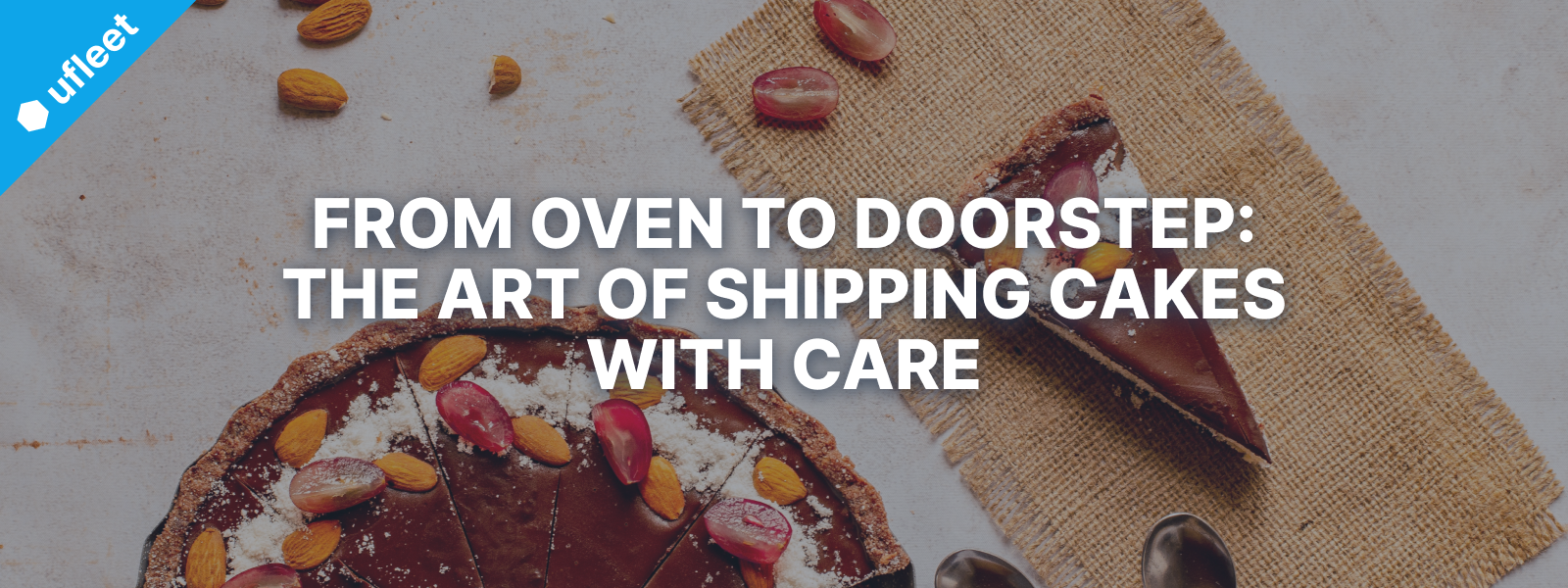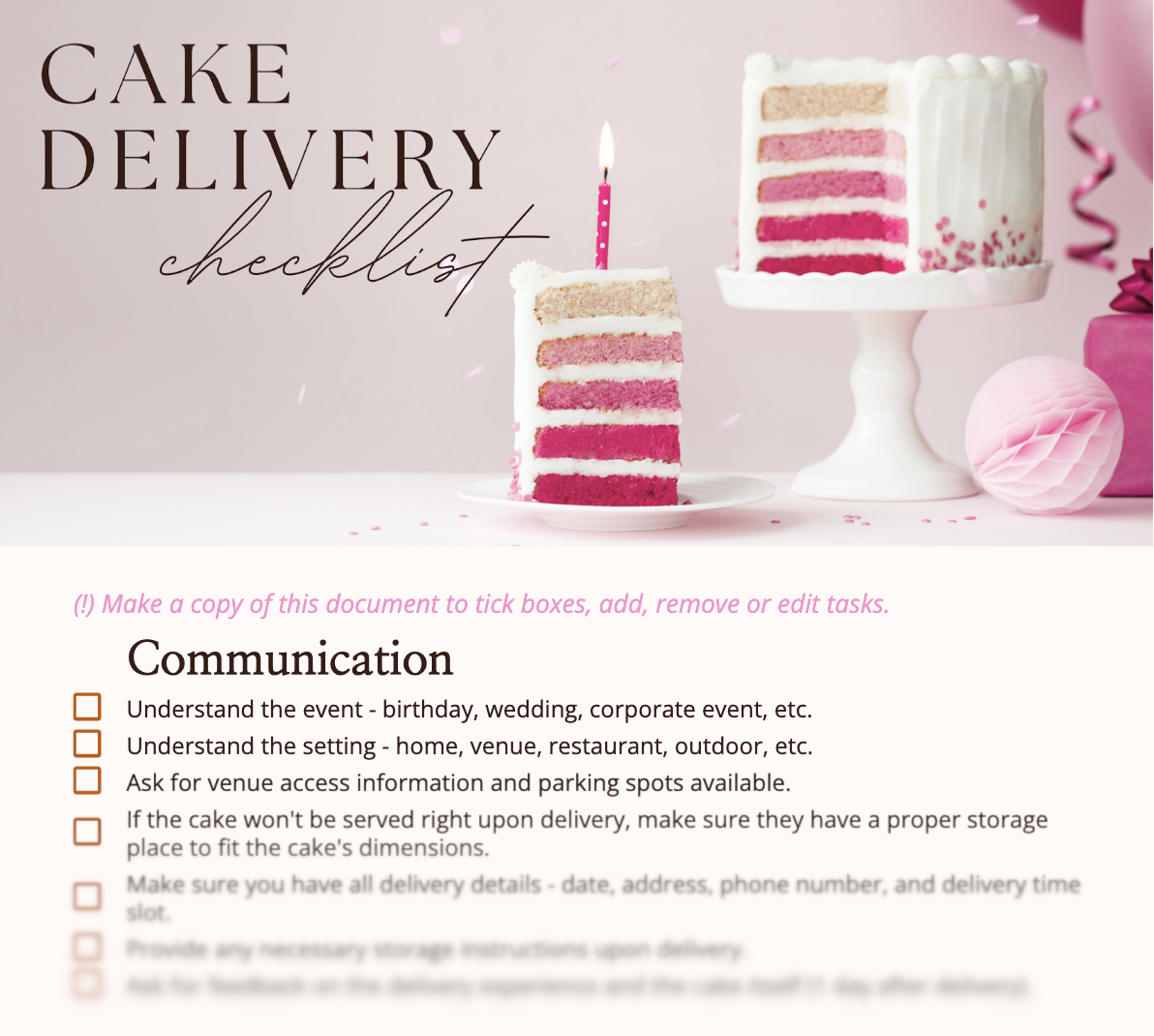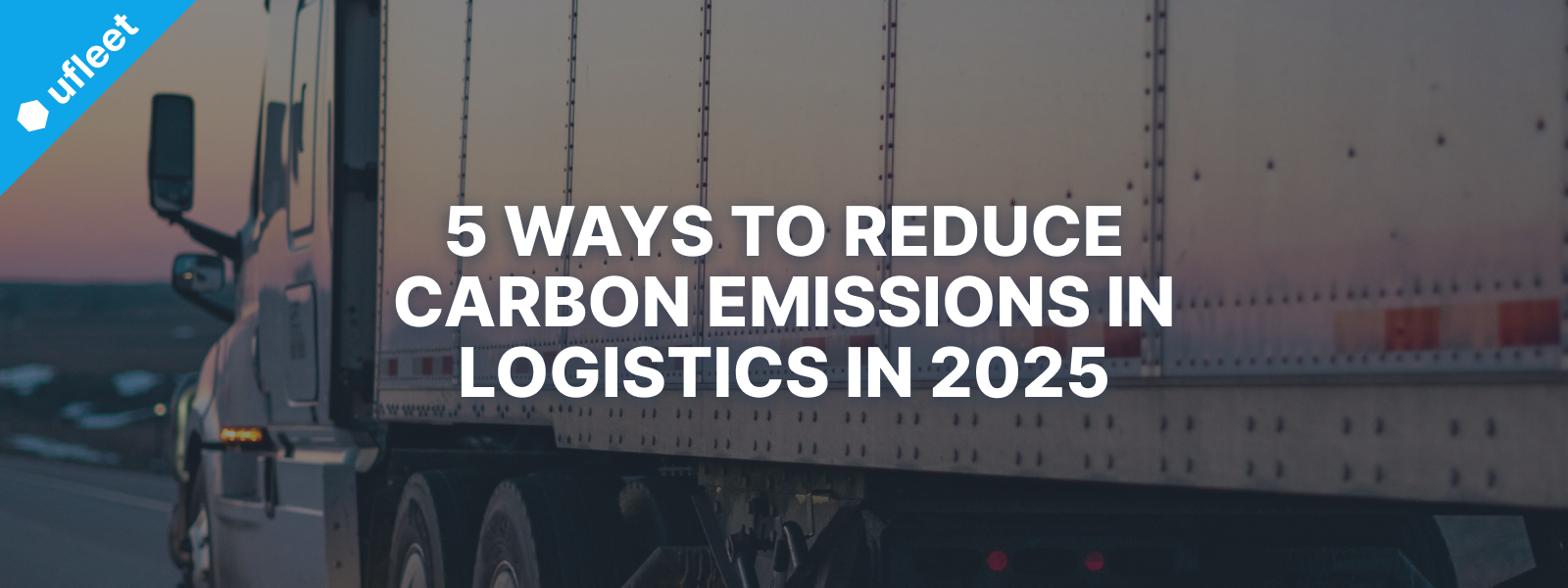Temperature control, base stabilization and choosing a proper box are among the factors for success.
From Oven to Doorstep: The Art of Shipping Cakes with Care

Shipping cakes isn't just about moving baked goods from point A to point B.
It’s about transporting delicate culinary masterpieces. Works of art that need hours to be created but seconds to be destroyed.
Putting the cake in a box, unfortunately, is not enough to guarantee a delightful experience for your customers when they open the package.
This is where the art of cake packaging and shipping steps in. If done correctly, it can transform a potential logistical nightmare into a delightful journey of taste and presentation.
Let’s jump straight into how to achieve this.
Understand cake sensitivity
Cakes require a level of care and attention that surpasses that of ordinary packages.
They're fragile, perishable, and high-maintenance. Understanding their nature is the first step towards appreciating why their safe shipping is a task that can't be taken lightly.
At the heart of the cake shipping challenge lie three components:
- Temperature
- Moisture
- Structural integrity
Let's take a look at each one of them.
Temperature control
Bad temperature control during delivery can lead to structural instability causing layers to shift or collapse.
By default, cakes dislike excessive heat because it creates many problems.
It can result in frosting melting and losing its defined shape. Intricate designs, smooth finishes, and delicate decorations can become distorted or blend together.
Flavor degradation is another possible problem. Fillings may become runny, frosting can become overly sweet, and the cake's overall taste may be altered or diminished.
Moisture management
Moisture is both a friend and a foe in the world of cake shipping.
While a certain level of moisture is crucial to maintaining cake freshness, excessive humidity can lead to sogginess, changes in texture, and compromised taste and appearance.
Soggy cake layers lose their structure and may even break apart when sliced, leading to an unappealing and unsatisfying eating experience.
Excessive moisture can cause the texture to deteriorate. What was once a tender and airy crumb can turn into a mushy or gummy consistency.
The cake might also develop an unpleasant taste due to excess moisture affecting ingredients, and excess moisture can smudge frosting and decorations.
Structural integrity
The structural integrity is dependent on moisture and temperature. But it’s also affected by vibrations, sudden movements, and rough handling during delivery.
Vibrations from uneven roads or bumps can cause delicate cake layers to shift or settle unevenly.
Abrupt stops, starts, or turns can cause layers to slide against each other. Excessive jostling or improper placement within the vehicle can also be problematic.
Not to mention rough or careless handling during loading, unloading, or transit can result in physical damage.
Prepare the cake for shipping
After we took a look at why understanding cake sensitivity is crucial for successful delivery, let's move to step 2 - preparing your precious creation for shipping.
Pro tip: Check out our cake delivery checklist template.

Stabilize the cake before shipping
Stability becomes an essential prerequisite for success during the preparation phase. The challenge lies in ensuring that the base and tiers remain harmoniously intact during transit.
Dowels, support boards, and careful assembly techniques become invaluable tools in securing the base and preventing unwanted shifting.
If you stabilize your creation, cake layers will act like a cohesive unit which will help them withstand the rigors of the journey.
Chose the right packaging
Cushioning materials play a pivotal role in the delicate dance of cake shipping. Foam inserts, bubble wrap, and packing peanuts step onto the stage as the supporting cast that absorbs and diffuses shocks.
Their purpose is not just to prevent physical damage but also to ensure that the cake's internal structure remains intact.
Another important thing to keep in mind is finding the right size of box or container. A box that's too roomy invites movement and instability, while one that's too snug risks damaging decorations.
This one can make or break the cake's integrity so be mindful. Pay attention to each dimension and design intricacies when choosing a box or container.
Design a great unboxing experience
The packaging isn't merely a means of protection; it's an integral part of the overall experience. Unboxing a cake should be a moment of anticipation and delight.
Beautiful packing materials and personal touches always elevate the experience from ordinary to extraordinary. A handwritten note or a custom decoration adds a warm, human connection to the delivery.
These flourishes aren't just embellishments; they're expressions of care and thoughtfulness that transform a cake delivery into a cherished memory.
Pro tip: Encourage customers to share unboxing photos.
In the age of social media, the unboxing experience extends beyond the recipient's immediate surroundings. A well-placed hashtag or a call-to-action to share on social platforms can spark a chain reaction of engagement.
Schedule shipments for optimal arrival
Shipping cakes isn't just about distance; it's about timing. Your priority is to make sure the cake arrives as fresh and flawless as possible. Schedule shipments strategically by considering transit times, weather forecasts, and delivery windows.
Chose your courier service provider carefully
You always have the option to deliver it to the customer's door yourself but here, we'll take a look at partnering with a courier service provider.
Selecting the right courier is a decision that can make or break the entire experience. Take time to evaluate providers and explore what they offer. A few questions to ask:
- How do they handle sensitive items?
- Can they offer a temperature-controlled delivery?
- Do they offer delivery tracking?
- Do they inform the recipient about delivery windows?
- What would happen if the customer is not home?
- What are the handling practices?
Consider these factors to make an informed decision that aligns with the cake's delicate nature and the recipient's expectations so you won't regret it afterward.
@gluttonous.meatbag Guy must have been an ex-FedEx worker manhandling packages like this… UPS, you’re better than this! Gotta emphasize the importance of treating packages with respect… #UPS #Fedex #Shipping #USPS #Postage #Christmas #Holiday #Mail #SmallBusiness #FYP #ForYouPage
♬ Oh No - Kreepa
Handle enexpected hiccups smart
Nothing can ruin the customer experience like delivery delays, compromised quality, or a poor delivery communication process.
Unfortunately, such things happen. In most cases, it's something outside of your control but what is in your control is to be prepared.
Addressing these setbacks requires a proactive approach. Try developing an action plan for common delay scenarios. When possible, always inform the customer upfront. Be transparent in your communication.
Learn how to apologize and compensate customers when things go wrong. Take ownership of mistakes, express sincere regret, and offer appropriate solutions.
Whether it's a damaged cake due to transit issues or a delay, acknowledging the inconvenience and taking steps to make it right can transform an unhappy customer into a satisfied one.
A sweet conclusion to the cake shipping journey
Shipping cakes isn't merely a logistical task. It's an art that demands meticulous attention to detail. To wrap this post up, here are the most important takeaways:
- Understanding cake sensitivity is the first step in ensuring a delightful delivery.
- Temperature control, moisture management, and maintaining structural integrity are critical aspects to master.
- Preparing the cake involves stabilizing it, selecting the right box size, and designing an exceptional unboxing experience.
- Shipping must be scheduled strategically, and choosing a courier service provider wisely is paramount.
- Handling unexpected hiccups with transparency, proactive communication, and compensation measures can turn customer dissatisfaction into satisfaction.
Ultimately, the success of cake shipping lies in approaching the process with care and preparing for as many things that can go wrong as possible.
If you enjoyed this article, subscribe below and you’ll get more like this each month.
Never miss a post
You may also like…
 Tips & Know-How5 Ways to Reduce Carbon Emissions in Logistics in 2025
Tips & Know-How5 Ways to Reduce Carbon Emissions in Logistics in 2025You too can reduce costs and improve efficiency with Ufleet
- plan and optimize delivery routes
- manage and empower drivers
- enhance customer experience
- make data-driven business decisions
We’d love to learn about your challenges.
Leave your email and we’ll get back to you.

